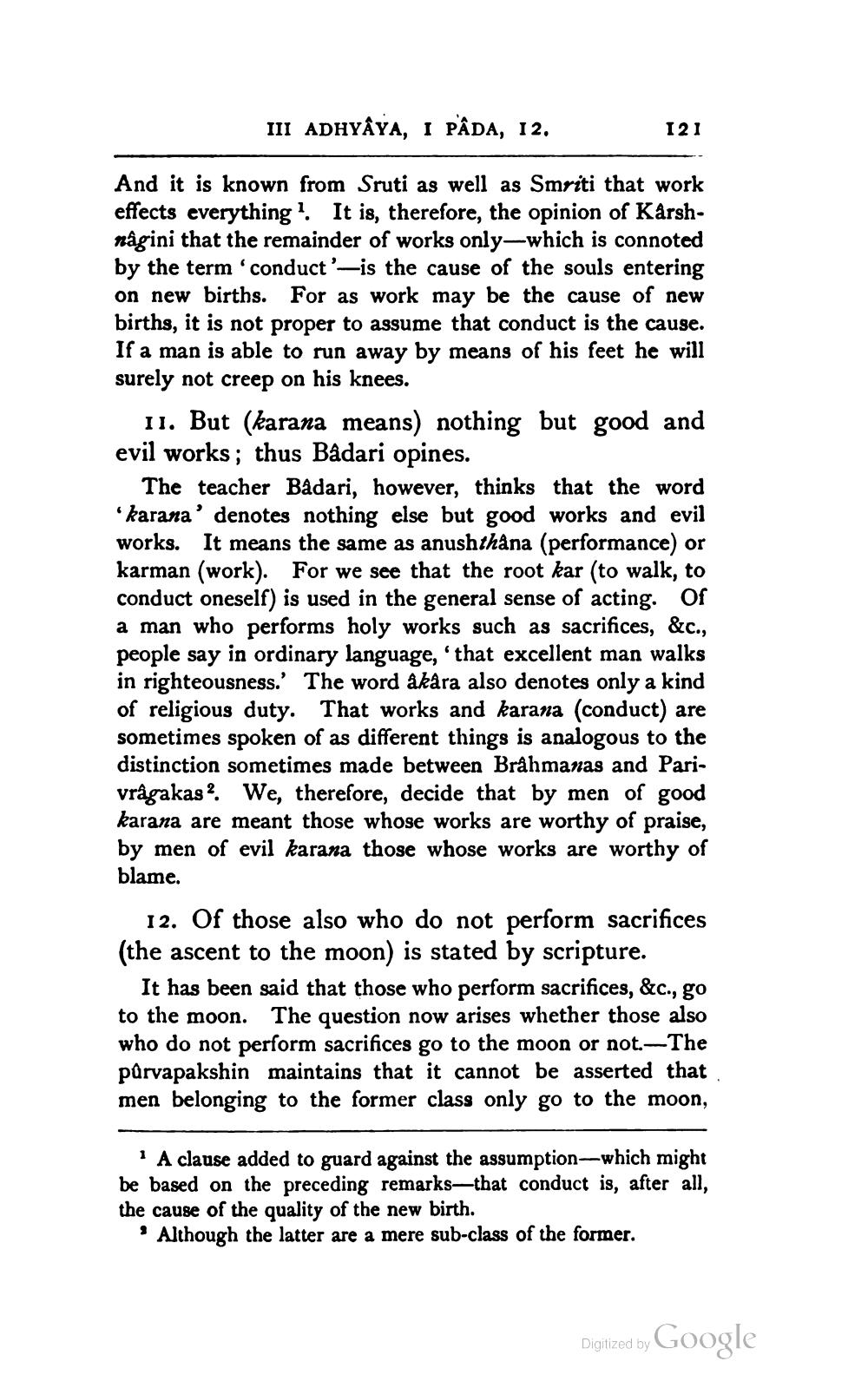________________
III ADHYAYA, I PÂDA, 12.
And it is known from Sruti as well as Smriti that work effects everything 1. It is, therefore, the opinion of Kårshnagini that the remainder of works only-which is connoted by the term 'conduct'-is the cause of the souls entering on new births. For as work may be the cause of new births, it is not proper to assume that conduct is the cause. If a man is able to run away by means of his feet he will surely not creep on his knees.
121
11. But (karana means) nothing but good and evil works; thus Bâdari opines.
The teacher Bâdari, however, thinks that the word 'karana' denotes nothing else but good works and evil works. It means the same as anushthâna (performance) or karman (work). For we see that the root kar (to walk, to conduct oneself) is used in the general sense of acting. Of a man who performs holy works such as sacrifices, &c., people say in ordinary language, 'that excellent man walks in righteousness.' The word âkâra also denotes only a kind of religious duty. That works and karana (conduct) are sometimes spoken of as different things is analogous to the distinction sometimes made between Brahmanas and Parivrågakas2. We, therefore, decide that by men of good karana are meant those whose works are worthy of praise, by men of evil karana those whose works are worthy of blame.
12. Of those also who do not perform sacrifices (the ascent to the moon) is stated by scripture.
It has been said that those who perform sacrifices, &c., go to the moon. The question now arises whether those also who do not perform sacrifices go to the moon or not.-The purvapakshin maintains that it cannot be asserted that men belonging to the former class only go to the moon,
1 A clause added to guard against the assumption-which might be based on the preceding remarks-that conduct is, after all, the cause of the quality of the new birth.
3 Although the latter are a mere sub-class of the former.
Digitized by
Google




